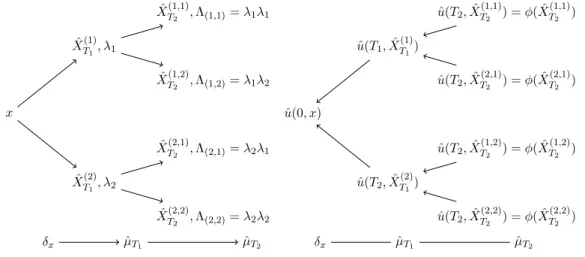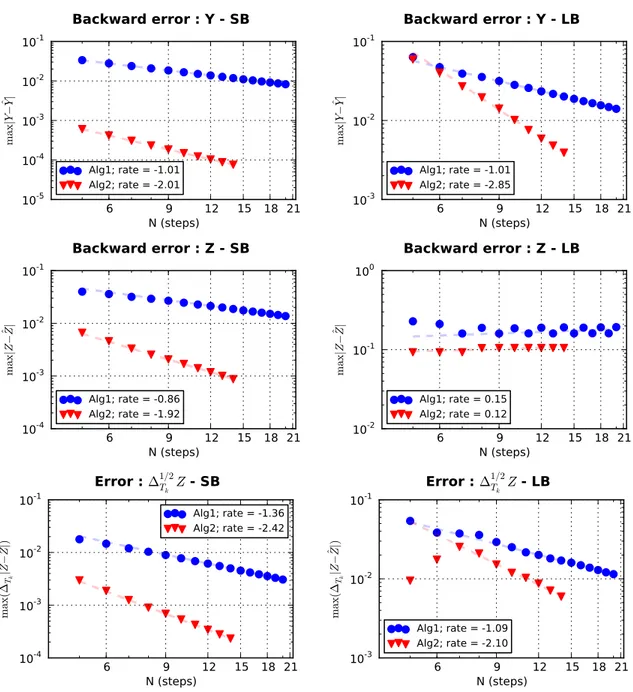A cubature based algorithm to solve decoupled McKean-Vlasov Forward Backward Stochastic Differential Equations
Texte intégral
Figure




Documents relatifs
The emergence of a biparental nourishing endosperm in the seeds of flowering plants is a pinnacle of an evo- lutionary trend towards increased parental control over plant
Ce modèle a montré que l’expression seule des protéines virales n’était pas suffisante à l’induction de fibrose, suggérant ainsi que le contexte inflammatoire
Cette étude a défini un modèle basé sur les mêmes considé- rations pour deux topologies de convertisseurs : le convertisseur à capacité commutée (SCC) et le convertisseur
So, in this work which deals with the treatment of paracetamol in liquid by non-thermal plasma process, the effects of the nature of the working gas into the solution and
In this work, motivated essentially by the earlier works and their applications in diverse research subjects, we es- tablish some new P´ olya-Szeg¨ o inequalities involving
This paper is concerned with numerical approximations for a class of nonlinear stochastic partial differential equations: Zakai equation of nonlinear filtering problem and
Keywords: Backward stochastic differential equations, Malliavin calculus, dynamic programming equation, empirical regressions, non-asymptotic error estimates.. MSC 2010: 49L20,
The second order perturbation analysis discussed in this article has been used with success in [27, 28, 30] to analyze the stability properties of Feynman-Kac type particle models,